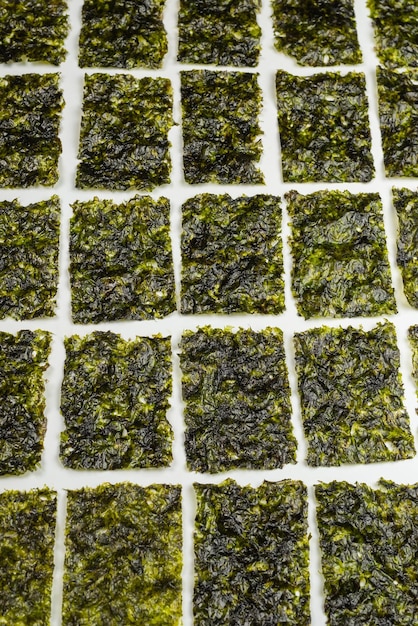
What Is Iodine?
Iodine, a chemical element with the atomic number 53 and the symbol I, appears as a purple-black solid or a purple vapor when in gas form. It has 37 known isotopes, with I-127 being the only non-radioactive form found in food and supplements. As a trace element, iodine is rare but essential for human health. The body cannot produce iodine, so it must be obtained from food or supplements. Iodine is crucial for making thyroid hormones, which impact brain development, metabolism, and various bodily functions.
What’s the Difference Between Iodine and Iodide?
When iodine exists as a single ion, it’s called iodide. Iodide, or I-, can be found alone or bound to another element. As a negative ion, iodide binds with positively charged ions like potassium (K+), forming compounds such as potassium iodide (KI).
Where Is Iodine Used in the Body?
Iodine is used to produce thyroid hormones, which influence brain development, metabolism, and other bodily processes. While these hormones are present throughout the body, only thyroid and breast tissue cells can absorb elemental iodine via a molecule called the “sodium-iodide symporter.” The thyroid gland, located in the neck, takes up iodine from the blood to create T3 (triiodothyronine) and T4 (thyroxine) hormones. T3, containing three iodine molecules, and T4, containing four, are essential for energy production in every cell. T4, derived from the amino acid tyrosine, regulates T3 production, which is more directly involved in metabolism.
Top 10 Iodine Health Benefits
Iodine offers numerous health benefits for people of all ages, primarily through its role in thyroid hormone production. These hormones are vital for childhood brain development and overall health, impacting the heart, kidneys, liver, and more. Here are ten key benefits of iodine:
Necessary for Thyroid Hormone Production
Iodine’s primary role is to produce thyroid hormones, with most of the body’s iodine stored in the thyroid gland. The pituitary gland releases thyroid-stimulating hormone (TSH), prompting the thyroid to produce T3 and T4. Stress can increase TSH production, affecting hormone levels and metabolism. The hypothalamus also influences thyroid hormone production through thyrotropin-releasing hormone (TRH). Maintaining adequate iodine levels is crucial for thyroid health.
Essential for Childhood Brain Development
The World Health Organization identifies iodine deficiency as the leading cause of preventable mental and intellectual disabilities. Pregnant women need extra iodine for their unborn child’s brain development, and breastfeeding women require even more to support their own and their baby’s needs. Even in developed countries, many pregnant women are iodine-deficient, which can affect the child’s IQ and cognitive abilities. Iodine supports brain function throughout life, making adequate intake important.
Supports Mental Wellness Throughout Life
Iodine and thyroid hormones are vital for brain function, mental wellness, and mood regulation. There may be links between low iodine levels during pregnancy or childhood and conditions like ADHD and autism. Increasingly, healthcare providers recognize the importance of nutrition for mental health due to the connections between the gut, mental wellness, and the immune system. Ensuring sufficient iodine intake is beneficial for overall mental wellness.
Boosts Metabolism and Energy
The thyroid gland controls metabolism. Hypothyroidism, or low thyroid function, can lead to weight gain, low energy, and brain fog, often caused by low iodine levels, genetics, or other conditions. Hyperthyroidism, or overactive thyroid, makes it difficult to gain weight due to excessive T3 and T4 production. Supplementing with iodine can help balance thyroid function, but it’s important to consult a healthcare provider.
Stimulates the Immune System
Iodine has powerful antimicrobial properties, making it useful for cleaning wounds and preparing for surgeries. These properties also benefit the immune system, helping to eliminate harmful organisms and defend against harmful cells through apoptosis. Iodine acts as an antioxidant, scavenging free radicals in the body.
Promotes Healthy Hair and Skin
Adequate iodine intake supports healthy skin, nails, and hair. Iodine deficiency can lead to poor hair growth and dry skin. Conditions like cretinism, caused by iodine deficiency, result in less hair and thick, dry skin. Even mild iodine deficiency can cause dry skin, and some people may experience acne after consuming iodine-rich foods.
Detoxes the Body of Halogens
Iodine belongs to the halogen group on the periodic table, along with chlorine, fluorine, and bromine. These elements can disrupt bodily functions, with chlorine used in pool disinfection, fluoride affecting enzymes, and brominated flame retardants linked to thyroid dysfunction and other issues. Iodine helps detoxify the body by releasing these halogens from the thyroid and binding to toxic metals.
Protects the Thyroid From Radiation
During nuclear emergencies, radioactive iodine (I-131) can be released into the atmosphere and absorbed by the thyroid gland. To prevent this, non-radioactive iodine in the form of potassium iodide (KI) is given in high doses to saturate the thyroid and block radioactive isotopes. This dose is repeated daily until the threat subsides.
Must-Have for First Aid
Iodine is a staple in first aid kits, often in the form of povidone-iodine solution on towelettes for wound cleansing. Iodine tablets are also used for water treatment in emergencies, providing a quick method compared to boiling.
Supports Women’s Health
Iodine is crucial for women’s health, supporting brain, bone, and organ development during pregnancy, as well as reproductive and breast health. Moderate iodine deficiencies can reduce fertility, and severe deficiencies may lead to miscarriage. Even mild deficiencies during pregnancy are linked to complications like preeclampsia, gestational diabetes, and preterm birth. Iodine deficiency is also a risk factor for polycystic ovary syndrome (PCOS), and low thyroid activity can cause water retention and swollen skin.
How Much Iodine Should You Take?
The Food and Nutrition Board (FNB) at the Institute of Medicine provides guidelines for iodine intake, measured in micrograms (mcg). Some experts recommend higher amounts than these guidelines suggest. However, it’s important not to exceed the upper limit for safe consumption.
Life Stage and RDA:
– Adults (18+): 150 mcg
– Pregnant Women: 220-250 mcg
– Breastfeeding Women: 250-290 mcg
– Infants (0-6 months, if not breastfeeding): 110 mcg
– Babies (7-12 months, if not breastfeeding): 130 mcg
Is Iodine Safe?
Iodine supplements are safe when used as directed and are essential for health. The U.S. Institute of Medicine and the World Health Organization recommend a maximum of 1,100 mcg per day for adults. Some medications and treatments contain much higher iodine doses. People vary in their tolerance to iodine, and those with autoimmune diseases affecting the thyroid should be cautious with high iodine intake.
Can I Be Allergic to Iodine?
Contrary to common belief, iodine itself is too small to cause an allergic reaction. Allergic reactions to iodine-containing seafood are due to proteins, not iodine. Reactions to iodine-containing contrast dyes or povidone-iodine solutions are caused by other compounds, not iodine itself.
Side Effects of Iodine Ingestion
Iodine side effects are rare but can include a metallic taste, burning sensation, nausea, headache, or diarrhea. High doses of potassium iodide after radiation exposure may cause skin rashes, swollen salivary glands, or breathing difficulties. Iodine can worsen dermatitis herpetiformis and may interact with certain medications, especially those for thyroid conditions, high blood pressure, and heart issues.
Can I Take Too Much Iodine?
While iodine is essential, it should be taken responsibly. Excessive iodine can cause symptoms similar to deficiency, such as goiter and hypothyroidism. Those with kidney or thyroid issues should consult a healthcare provider. Overconsumption can lead to iodine toxicity, causing abdominal pain, delirium, fever, vomiting, and shortness of breath. People from iodine-deficient regions may need to adjust to increased iodine intake gradually.
What Are the Signs of Iodine Deficiency?
Iodine is vital for thyroid hormones and cognitive health. Deficiency symptoms include brain fog, poor mood, low energy, weight gain, fatigue, weakened immune system, and in women, breast heaviness. Severe deficiencies can cause enlarged thyroid glands, mental imbalances, stunted brain development in children, and miscarriage during pregnancy.
Who Is at Risk for Iodine Deficiency?
Pregnant women, children, those living far from the ocean, individuals on high-goitrogen diets, and those who avoid seafood or dairy are at higher risk. Pregnant women need more iodine for fetal development, and children need it for brain and bone growth. Dairy products have become less reliable iodine sources, and goitrogen-rich foods like cassava, millet, mustard, peanuts, and cruciferous vegetables can hinder iodine absorption.
Iodine & Salt
Since 1924, table salt has been iodized to combat deficiencies. Switzerland and the U.S. were pioneers in this practice, significantly reducing iodine deficiency and improving population IQ in affected areas. Despite iodized salt, U.S. iodine levels have declined since the 1970s, possibly due to reduced dietary intake and less iodine in dairy products.
What Are the Best Sources of Iodine?
A balanced diet can provide necessary nutrients, including iodine, though it can be challenging to get enough from food alone. Iodine-rich foods and supplements can help.
Foods That Provide Iodine
Seaweed is the best natural source, with varying iodine levels. Fish and seafood, particularly cod, shrimp, sardines, and tuna, contain iodine. Shellfish, eggs, and dairy products are also good sources. Vegetarians can find iodine in lima beans, prunes, and potatoes. Red Himalayan salt contains some iodine.
Iodine Supplements
When food sources are insufficient, iodine supplements like nascent iodine can be used, absorbed quickly by the body. Other options include potassium iodide and iodine mixed with potassium iodide. Supplements help meet daily requirements and prevent deficiency-related health issues.
Maintaining adequate iodine intake is essential for overall health, supporting thyroid function, brain development, and various bodily functions.



